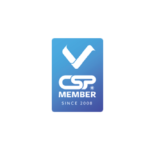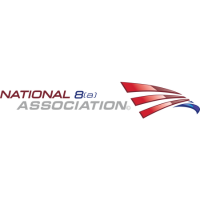
Workers’ Comp for Staffing Agencies: Avoid Headaches with Proactive Solutions
By: Matthew Williams, General Counsel
Navigating Workers’ Compensation in the Staffing Industry: Challenges and Solutions
In my experience, workers’ comp for staffing agencies is one of the most critical and complex considerations for staffing entrepreneurs. Unlike traditional employers, you place workers across multiple job sites, industries, and roles, which can make claim management a challenge!
Controlling workplace safety is difficult without on-site supervision, yet your agency bears the financial burden of workers’ compensation claims.
If you’re a staffing entrepreneur, you want to protect both your employees and your bottom line. I’ve spent years helping staffing firm owners navigate complex issues with workers’ comp. Let’s explore the most common pitfalls, proactive strategies, and financial tools that can help you stay ahead of workers’ comp challenges.
The Biggest Challenges of Workers’ Comp for Staffing Agencies
One of the most common mistakes you can make is to opt for the cheapest workers’ comp policy without fully understanding the long-term impact. I like to think about it like this: you get what you pay for. A cut-rate policy may leave you exposed to hidden costs, higher premiums down the line, and inadequate coverage when you need it most. Be sure to shop around and consider multiple policies.
Here are the other common mistakes to avoid in our industry.
- Failure to properly classify workers: Be sure your employees are placed in the correct job categories. If not, you can face miscalculated premiums and compliance issues.
- Lack of industry consideration: Understand the industry you serve, and markup accordingly to account for the cost of workers’ comp. This is particularly important if you place in the light industrial industry. Don’t price yourself into failure by skipping this step!
- Ignoring loss-run reports: Loss-run reports are the overview of your claims history, including the claim type, settlement cost, and claim frequency. Failing to review these reports regularly can prevent you from catching trends that may increase premiums or lead to denied coverage.
So, what can you do if you’ve already made some mistakes or frequently file claims? First, review your loss-run reports and premium statements quarterly or more often if needed. Own your loss history and shop around for the right coverage. Second, invest in strong safety programs—proven to reduce injuries and claims—because accident prevention is always more cost-effective than dealing with the aftermath.
Now, let’s cover other considerations for risk management.
Proactive Risk Management: How to Reduce Claims and Costs
To keep workers’ comp for staffing agencies costs in check and create a safer workplace for everyone, consider proactive strategies that prevent claims before they happen. These are the top recommendations I make to staffing entrepreneurs:
- Vet Clients and Job Sites: If you wouldn’t feel safe working there, neither will your temps. Partner with clients who maintain high safety standards and build strong relationships so they notify you of any injuries immediately.
- Implement Rigorous Safety Training: Before placing workers, proper training can significantly reduce on-the-job injuries.
- Leverage Data and Technology: Use analytics to monitor workplace risks, track claim trends, and identify problem areas before they escalate.
- Incorporate Workers’ Comp Costs into Markups: If you can account for workers’ comp in your pricing structure, do it. This protects your margins and ensures you’re not absorbing unexpected costs.
The American Staffing Association (ASA) offers in-depth best practices for reducing workers’ comp costs. Next, see how you can avoid cash flow headaches associated with workers’ comp.
How to Manage the Financial Impact of Workers’ Compensation
Workers’ comp premiums are one of the biggest recurring expenses for staffing firms, impacting cash flow and profitability. Unexpected claims can drive your premiums up, and you may struggle to keep up with payments while waiting on client invoices.
This is where payroll funding becomes an essential tool. By providing immediate working capital based on outstanding invoices, payroll funding allows staffing agencies to stay current on workers’ comp premiums without cash flow disruptions. Additionally, at Encore Funding, we work with reputable insurance partners and have in-house experts who can help you evaluate policies and loss-run reports. We want to ensure you have the right coverage for your business needs.
Did you know?
It’s important to note that workers’ comp history matters when you want to secure funding. Agencies with a track record of large losses or compliance issues can raise red flags for underwriters. However, the right funding partner can help turn those red flags around and give staffing firms the financial stability they need to rebuild their standing.
Choosing the Right Workers’ Comp Partner
Not all workers’ comp providers understand the unique risks and nuances of the staffing industry. To protect your business, look for insurance partners with expertise in both staffing and the industries you serve. ASA can be a great resource for finding trusted providers.
Consider alternative coverage options, such as pay-as-you-go workers’ comp programs. They can help manage cash flow by aligning premium payments with real-time payroll expenses.
A financially stable and reputable insurance partner can make all the difference in mitigating risk and ensuring long-term success.
Avoid Costly Workers’ Compensation Headaches
Workers’ comp for staffing agencies doesn’t have to be a constant source of stress. By taking these important proactive steps, you can protect your business and keep costs under control:
- Vet clients and job sites
- Implement rigorous safety programs
- Leverage payroll funding for good cash flow
- Partner with the right providers
At Encore Funding, we support staffing entrepreneurs in growing their financial stability. If you’re looking for a strategic funding partner who understands your industry, we’re here to help. Apply now, and a team member will contact you soon!
 info@encore-funding.com
info@encore-funding.com 216-998-9900
216-998-9900








